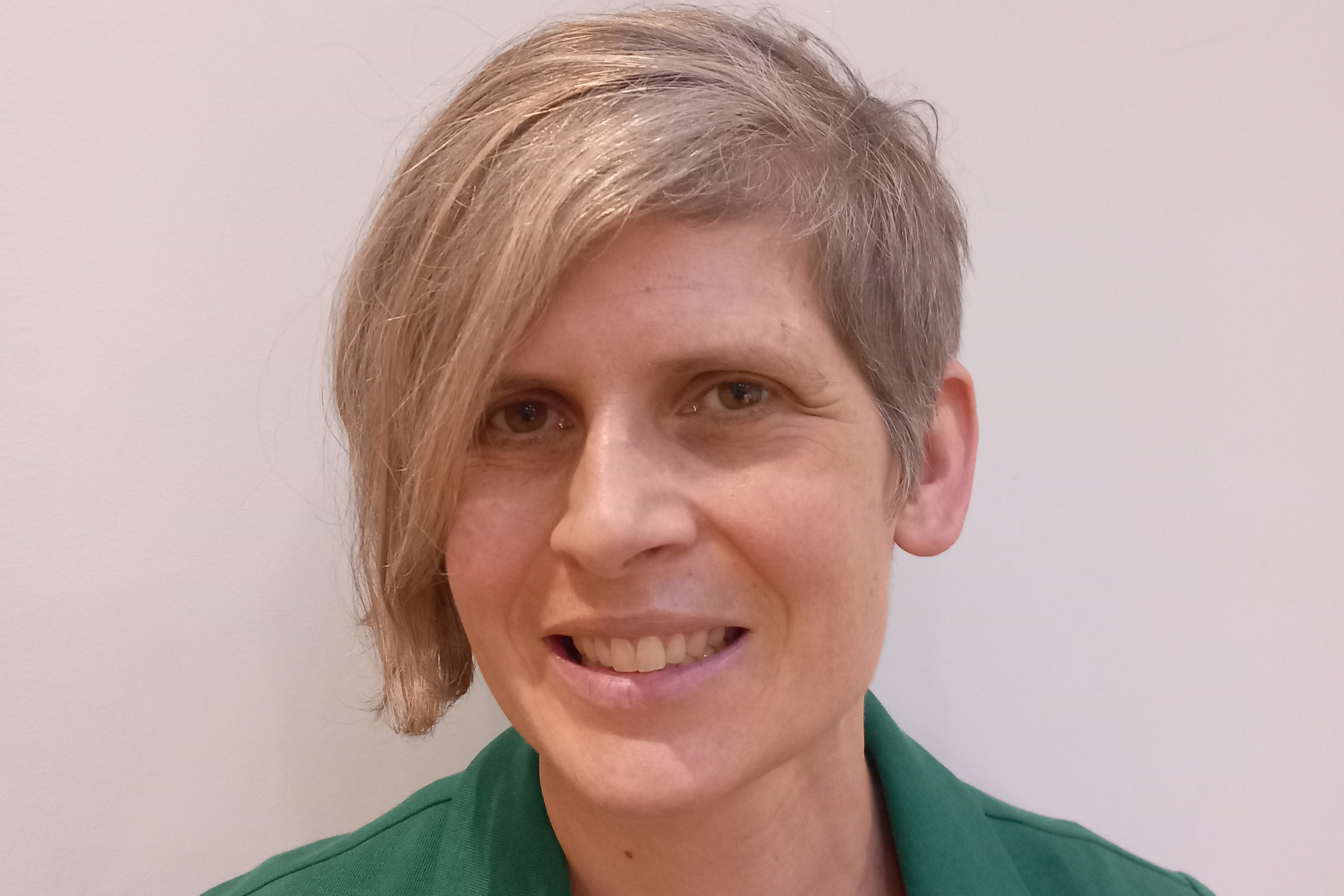An interview with Katie Mantell, Chief Executive Officer
13 February 2024

Tell us a bit about your background
I spent the last two decades working in human healthcare, with a particular interest in how innovation and research can improve patient care. My early career was in science journalism and digital communications, so I will be looking at who we are reaching out to at RCVS Knowledge and how we can support as many people as possible to deliver the best possible veterinary care.
What drew you to work at RCVS Knowledge?
I was attracted to RCVS Knowledge’s mission of advancing the quality of care for the benefit of animals, the public and society. I’ve always been fascinated by animals and the natural world, and it struck me that my experience in human medicine and health care might bring some interesting insights and connections.
I was also drawn by the space RCVS Knowledge sits in, which involves working with clinicians, academics, industry, and the public to support continual improvements in care. It’s really exciting to be part of an organisation that is all about working with a broad range of people – with different professional skills and perspectives – to advance care with a social purpose.
Lastly, I am really interested in charity leadership, having held a couple of non-executive positions in healthcare charities. I’m looking forward to working with colleagues at RCVS Knowledge to shape our strategy and maximise our impact in a way that we can measure and build on over time.
With your background in human healthcare, what do you think are the main similarities and differences in the challenges facing human and animal healthcare?
There are stark similarities in some of the day-to-day challenges that both human and veterinary healthcare teams are facing, such as increased demand from customers, and burnout and mental health problems in care providers. It goes without saying that there are a lot of commonalities in the One Health space, including the global challenge of tackling antimicrobial resistance. Pressing global issues such as sustainability and how professions can minimise their environmental impact also apply equally in human and animal health care.
Another common challenge is the difficulty in generating sustained behaviour change once a problem and solution have been identified – for example around antibiotic prescribing or use of national clinical audit tools. Regardless of your profession, knowing something does not necessarily mean you’ll do it when under pressure in the workplace, and there’s a lot that both human and animal medicine can learn from the field of human behavioural science.
In terms of the main differences, the commercial aspects of veterinary care and the fact that most practices are businesses (albeit of very different sizes) differs from the majority of human healthcare, and brings different pressures. While data sharing for benchmarking or research purposes is far from easy or uncontentious in human health care, it is at least aided by the fact that most health care in the UK falls under the umbrella of the National Health Service. Another key difference is the complexity of decision-making in veterinary care given the three-way clinician, client, and patient relationship.
Where do you think RCVS Knowledge can have the most impact in the future?
I am really keen to explore the role that RCVS Knowledge can play in big, global issues such as the One Health agenda and sustainability. We are already doing a lot of work on antimicrobial resistance (AMR) with our VetTeamAMR initiative, including providing audit and benchmarking tools and learning resources. I’m curious about how we can increase uptake of these training resources and work in the best way with others to have the maximum impact on this really significant and pressing global issue.
I also think we could have a role in the use of big data to improve clinical care. We have already launched the RCVS Knowledge Canine Cruciate Registry, which a growing number of veterinary professionals are using to audit their canine cruciate surgery. I would like to explore how RCVS Knowledge as an independent charity might be able to act as a neutral place to bring together data from different veterinary practices so we can use this to support people to drive improvements in care.
In my first couple of months in the role, I have been struck by the really difficult decisions that need to be made about the care delivered to animals within the context of their owners’ individual circumstances. I am really interested in the subject of contextualised care and how we might be able to support veterinary teams to deliver the right care for animals in the context of the client, taking into account the latest clinical evidence, as well as the client’s financial situation and wider circumstances, for example whether they can provide the necessary aftercare for a given treatment.
We are also proud custodians of the RCVS archive, we run a library for veterinary professionals and produce the Veterinary Evidence journal, so I am really interested in how we can use creative ways to document learning from the past and use the most relevant and robust evidence available today to inform current practice as well as the future of veterinary care.
Can you tell us something about yourself that might surprise people?
Earlier in my career, I spent a couple of years living in Ecuador and Chile. As part of my time in Chile, I wrote for a human rights website, did some hefty translations on plant health science and contributed a chapter for a book about ‘fog catching’ in the Atacama Desert.